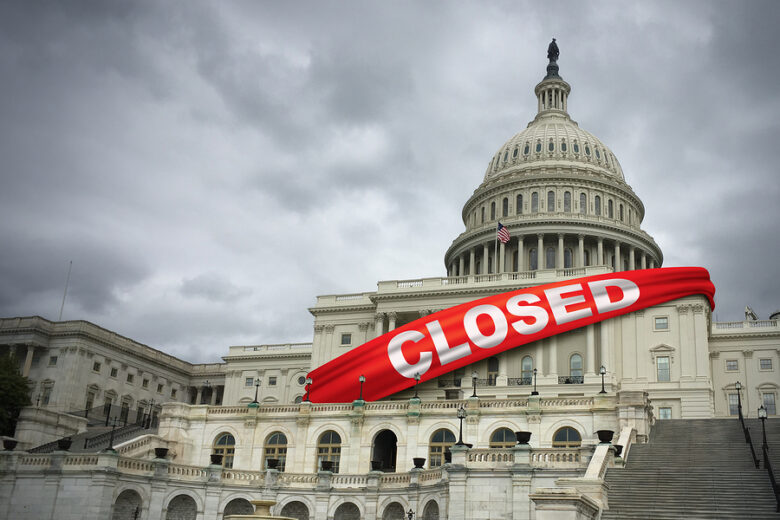Congress recently passed a stopgap spending bill to keep the government funded until March. Within the measure, a two-tier structure is upheld to handle the imminent funding shortage for certain agencies until March 1, and others enjoy funding until March 8.
Disputes among House Republicans, mainly centered on spending cuts and immigration reform, have compelled a reliance on Democratic votes to ensure the government’s continuous operation.
This comes after Speaker Mike Johnson and Senate Majority Leader Chuck Schumer announced an agreement to set the top-line discretionary spending level for 2024 at just under $1.6 trillion, with allocations of $886 billion for the military and $704 billion for non-military purposes. Though leaders from both sides praised the deal, the conservative Freedom Caucus has pushed back with claims that it will “obscure the actual spending numbers with more shady side deals and accounting tricks” and complaints that it is weak on border security.
Republicans are playing a dangerous game. With a slim majority in the House and presidential elections looming, the party cannot afford to take hard-line stances on surefire winning issues. To avoid a shutdown and establish the unity of the Republican Party going into election season, leaders must propose strategic spending bills that will ensure majority votes in November.
It appears that Republicans have begun on an unfavorable note by conceding a victory to Democrats on the top-line discretionary spending figure of $1.6 trillion. This “Goldilocks” number allows Democrats to say they are reducing spending without cutting significant programs. This will unquestionably become a positive talking point for Democrats during the 2024 election cycle.
The question is how Republicans can make the best of a bad deal. There is an immediate benefit for members who are part of the right flank to be as unruly as possible due to the attention they will receive. Using a playbook akin to President Trump’s 2016 primary campaign, they aim to maximize their time in the limelight by any means necessary. But such a strategy could divide the party, ultimately costing them in November.
Nonetheless, there is still room for optimism for Republicans in the spending legislation. By strategically wielding their slender House majority, the GOP leadership can secure wins by allocating funds to crucial issues resonating with independents. This could prove advantageous for conservatives, including those on the right flank who can claim success on border security.
Immigration, particularly illegal immigration, will be of utmost significance. Last year, Customs and Border Protection agents encountered 2.5 million undocumented immigrants at the southern border, with more than 300,000 arriving in December. This surge in illegal immigration has led to heightened concern and significant discontent among Americans. According to a November poll by Rasmussen, 81 percent of likely voters say that the border has become a serious problem. Additionally, 49 percent of survey participants expressed greater trust in Republicans to address the issue, while 37 percent leaned toward Democrats.
If congressional Republicans can tactically concede specific points to Democrats while emphasizing border security, they may still construct a robust argument for the GOP in the November elections. However, Republicans must decide between internal conflicts or confronting Democrats on crucial, substantive issues. If the GOP continues with the former, it will likely endure electoral defeats in the fall.


